Decade in Review: Top Singles 50-31

I’m curious to see if Justice has a long career ahead of them, because they seem to have been a classic case of right band/right album/right time. Just as hip hop was looking outwards to electronic music for sonic inspiration, along comes two Frenchmen owing great debts to Daft Punk but interested in edgier beats and more aggressive sounds. It was a perfect match for mainstream success, but it still needed a bit of a Trojan Horse. The solution: a Michael Jackson-aping pop song that hit like an instant classic from the moment the radio fuzz kicks in.
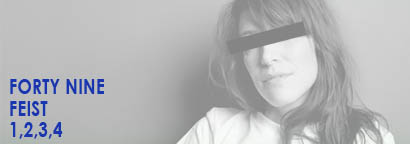
One of the biggest complaints leveled against indie rock this decade has been accusations of “twee,” of it being too cute and breakable for its own good. I don’t necessarily disagree; I just don’t see the problem with cute, breakable things, or why they’re worth complaining about. I’m pretty sure that “1,2,3,4” would have been a crossover hit even without Steve Jobs’ help, because it’s like a Sesame Street song for 20-somethings: a little bit broken, but still full of youthful enthusiasm and a noble heart.

I’m not sure what disappoints me more about the Dears: that they never were able to reach the same stratosphere as their Montreal brethren, or that it’s been six years since they brought their massive, spectacular live show to our eastern shores. I saw them play this song to a 30-person crowd at Acadia University and the room felt like it was a full house with sound cascading off the walls. Less proggy than a lot of their material, “Lost in the Plot” lingers with me both as the sound of what was, but also what might have been.
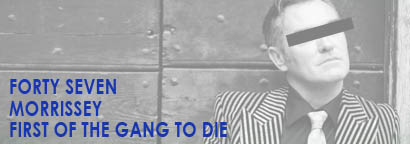
Coming from one of music’s most notorious mopes, “First of the Gang to Die” is one hell of a rouser. With dark irony, Moz sings of sunlight at the home of the blind and smashed human bones, all overtop of a blistering guitar hook that’s the closest thing he’s written to a genuine singalong in years.
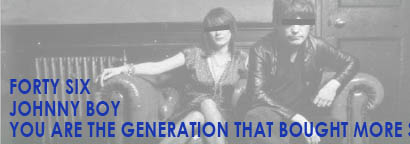
A recent discovery – as I wrote about last month – but a no less spectacular one, “You Were the Generation…” is one of the decade’s hidden gems that, hopefully, future sonic archivists will dig up and rediscover accordingly. That it was ever a modest hit at all in the UK perhaps speaks to the odd times in which we live. In its sonic reconstruction, there’s a sense of breaking apart the past and rebuilding something we can almost call our own.

For many, including me, this was the introduction to one of the decade’s most sporadic, complicated and fascinating indie rock outfits. Ironically, they broke out with a track where band’s dominant frontman – Kevin Drew – takes a back seat to Brendan Canning’s quiet whispers. But it’s the instantly-recognizable bass line and escalating hand claps that made it a miniature classic. Every time I’ve seen the band play this song live, there’s not a soul in the venue who doesn’t clap in time; it’s as if we all collectively know our part to play.
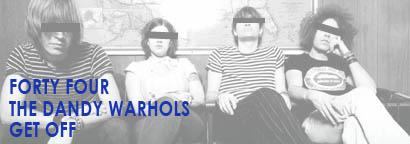
There was a time circa 2000 when the Dandy Warhols seemed like the real deal. And while subsequent records and the band’s assholedom have tarnished the promise of Thirteen Tales from Urban Bohemia, the first single still sounds like a band ready to take on all-comers at decade’s dawn. Like a hedonist Western, the simple guitar riff and doubled-vocals of “Get Off” makes you believe for three minutes that the Warhols actually WERE cool, and not just a bunch of snotty punks trying to be.
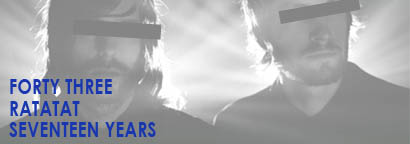
I really enjoy Ratatat, but they’re one of those bands where if they had disappeared after “Seventeen Years,” I’m not sure I would have minded. I distinctly remember a friend of mine describing his first experience with the band’s self-titled debut record as an ordeal to avoid pressing the repeat button on track one over and over again. No wonder, as “Seventeen Years” is such a perfect distillation of Ratatat’s sound: layered guitar riffs that escalate quickly, with a moodier, rhythmic outro that takes us home softly.
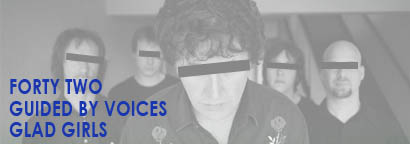
In a scattershot career defined by a glutton of scattershot material, Robert Pollard’s high points put most other bands to shame (which is why the band’s greatest hits record is, in my view, one of the most indispensible collections out there). Though Isolation Drills isn’t the band’s best by any margin, the blissful “Glad Girls” is the closest the band ever came to a hit, and it’s pretty damn obvious to see why: it’s pretty much chorus after chorus, only taking a breather for a polite bridge that apes R.E.M. with clinical precision.
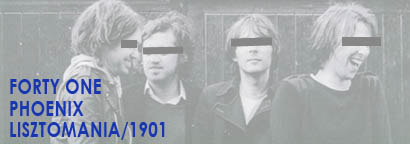
I’m cheating. Deal with it. I tried for weeks to choose one of these two songs and failed miserably; as 2009’s strongest one-two punch, they’re completely inseparable to me. “Lisztomania” is as loose and playful as “1901” is industrial and calculated. It doesn’t matter which of them comes up on my iPod – my feet start swaying side to side, my head starts bopping and, if I’m in public, I have to fight the urge to start a dance party right on the spot. I often lose that fight.
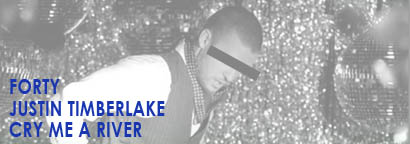
It’s becoming pretty clear by that Timbaland jumped a massive shark tank at some point in the last few years, but there was a time when his sound was a revelation. And his greatest frontperson remains Timberlake, and this kiss-off track their most powerful work. It’s easy to forget that the forgettable “Like I Love You” was the first single from Justified – it wasn’t until this moody, dark synth opus that the two Tims managed to shatter the boy band image and build one of the decade’s more exciting pop icons in its place.

On a massive concept album that tries to find balance between the beautiful and the bombastic, no track finds that equilibrium quite like “Chicago.” The song is Illinois’ anthemic centerpiece, but frankly it’s a bit of a marvel that it succeeds so spectacularly, especially when you consider how silly the overly-emotional lyrics sound when you read them out loud. But somehow, the soaring strings and hushed vocals allow every word to sound harshly believable, the entire package coming together to make something truly majestic and memorable.
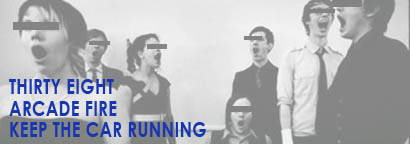
Bruce Springsteen’s best songs about cars always framed vehicle’s role in staging an escape as an act of desperation, not ecstasy or joy. It only makes sense, then, in crafting their most Springsteenian work to date that the Arcade Fire would make the car seem like a death trap, only marginally less terrifying than the existential dread that haunts its protagonist. He/she may be in denial about the darkness that lies down the road, but we sense its ominous presence in every chord, every scream.
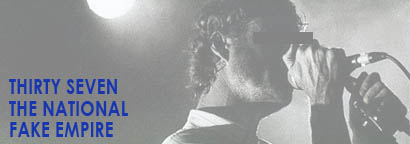
This song was recently featured on CBC Q’s ongoing “How To” video series, where guitarists show off how to play their iconic songs. Turns out the secret to this song’s rolling piano riff is that one hand is playing every three beats, while the other hand plays every four. Guitarist Aaron Dessner talks about this in a shockingly nonchalant way, as if doing this is a simple, easily replicated procedure. I’ve been listening to the song for two and a half years now – it still sounds like magic to me.
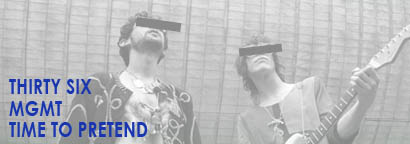
That the members of MGMT are my age pisses me off to no end. We shouldn’t get away with this at our age: a cocky, confident debut that has no qualms about trying a bit too hard to be cool. And while in any other context Oracular Spectacular may have been the sort of smug, hipster record that earns a harsh blog backlash, the band smartly led with “Time to Pretend” – a fuzzed-out haze of a track that’s pretty hard to dislike by the time its four minutes roll to an end. Its romantic nostalgia may be more than a little bit vain, but hey, aren’t all of us these days?
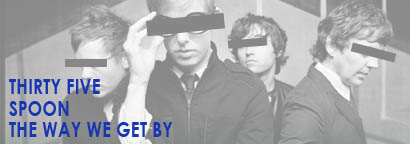
Spoon are at their best when they’re at their least. In an age where studio dressing crosses genres and pay scales, few other bands have less need for flourish, pomp or circumstance. A Spoon track succeeds by stripping away everything but the most essential elements. Recalling “The Way We Get By’s” piano riff from memory takes mere seconds; I’d say it’s pretty damn essential.
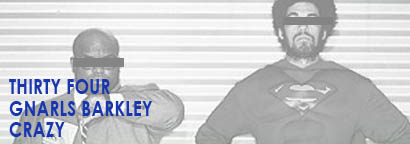
If there’s a contender for the decade’s most inexplicable pop hit, here it is. What’s so surprising and rewarding about “Crazy’s” success is that it had nothing to do with the band’s image or personality. After all, most people didn’t ever know who the unfortunately-named Gnarls Barkley were (a DJ only hipsters had heard of and a rapper that even fewer knew). No, this bizarre, strange, creepy song owes its success entirely to itself: an impassioned vocal, an old-fashioned bassline and just enough oddness to stand out on the radio dial.
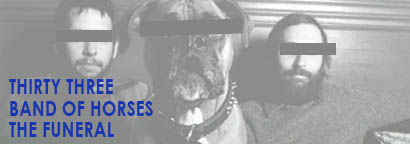
When preparing my decade coverage, I had half a mind to do a “greatest hits of the blogosphere” list of songs and albums whose success appeared to be almost entirely driven by music and MP3 blogs. Were I to go ahead, “The Funeral” would not only make such a collection but might top of the list. Band of Horses’ unassumingly confident debut sounded like My Morning Jacket meets The Shins – plum pickings for hipster folk – but it might have been lost to the digital wilderness had every blogger and their mother at the time not realized that “The Funeral” was a mini-masterpiece of pent-up passion and release, and worth shouting to the cyber rooftops about. It still is.
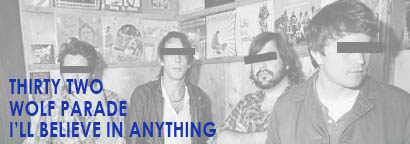
Two Wolf Parade albums and four EPs. Three Sunset Rubdown records and two EPs. Two Swan Lake records. And a new solo record coming out next year under the moniker Moonface. Spencer Krug has ADD, and thank goodness for that. But there will always be a special place for “I’ll Believe in Anything,” his arrival notice as one of Canada’s best songwriters and performers. Apologies to the Queen Mary’s alternating tracklist, with tracks switching between Krug and fellow Wolf Parade songwriter Dan Boeckner, is a close fight until that keyboard riff kicks in, those guitars chime and Krug’s unmistakable croon warbles, on the verge of breaking down with every impassioned line. After that, it’s no contest.
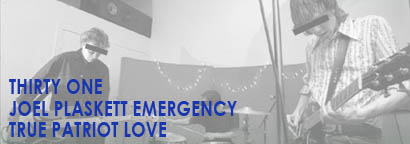
Joel Plaskett’s probably the closest thing that Canada has to a Springsteenian archetype right now, so it’s only fitting that his most beloved song appears to be woefully misunderstood every time he plays it in front of an audience. Far from a simple, fist-pumping patriotic anthem, “True Patriot Love” may be Plaskett’s most clever lyric, brilliantly laying out our country’s entire inferiority complex with the United States as a narrative of lost love and sexual angst. The early morning ritual – waking up with “O Canada” on the television – is less a moment of pride than of resignation. When seeking acceptance, sometimes we take what we can get.





